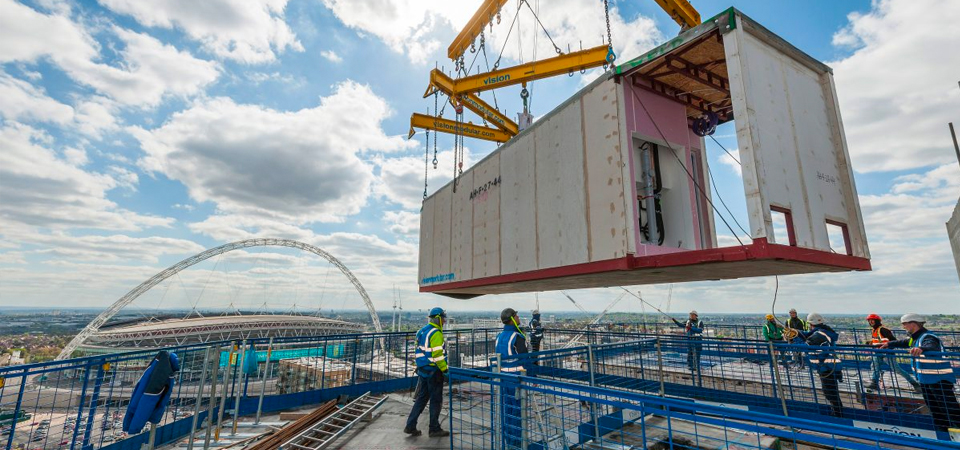
Growth has rebounded quickly to pre-pandemic levels in the UK construction industry, largely driven by demand from the housing sector, regeneration, and building innovation, including enhanced sustainability practices. Despite fluctuations in input costs for materials and labour as well as rising inflation and skill shortages, British construction is proving to be resilient.
Long term contracts, typical of project-based development work, helped insulate the construction sector from the worst effects of the pandemic. Apart from brief lockdown induced periods of inactivity, significant strides have been made in the delivery of regeneration in areas such as Luton where the Direct Air-Rail Transit (DART) is due to be completed in 2022. The Elizabeth line is now operational connecting Heathrow airport with Southall, Paddington and Central London.
A key challenge executing such critical infrastructure projects is the “lump sum” or “fixed price” contract with few mechanisms to adjust for price inflation, according to Womble Bond Dickinson LLP. This is exacerbating the impact of supply chain issues caused by shocks such as the war on Ukraine and Covid-19. On the basis of stable UK prices, up until the advent of the pandemic, most contracts offer limited scope to adapt to these conditions.
The regeneration of sites, like Kings Cross, into culturally enriched centres that deliver substantial annual gross value added, is driving changes in government policies that devolve decision making to the local level. This localised “levelling up” is harnessing the productive capacity of a £110 bn sector that employs 10 per cent of the country and has driven 25 per cent growth in infrastructure over the last two years according to data from the CEA.
A number of innovations are propelling this growth, such as sustainable design and contract modification. Sustainable building design to adhere to national carbon reduction targets, such as modular modern methods of construction (MMC). Modification of contracts to include fluctuation clauses, as well as greater use of configurations such as “Cost plus” and “target cost” contracts.
The Construction in 2022 and Beyond report also showed that optimism remains high in the sector, after a significant number of companies (47%) performed better than expected last year. According to the survey, 91% of respondents feel positive about the prospects for construction in the UK – up from 87% last year. Three quarters of those surveyed also expected revenue to increase in 2022, with profitability (63%), order books (63%), headcount (61%) and capital expenditure (50%) also set to rise.
https://thecea.org.uk/construction-set-to-make-sustainability-strides-in-2022/
References